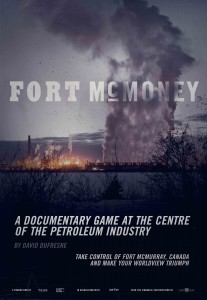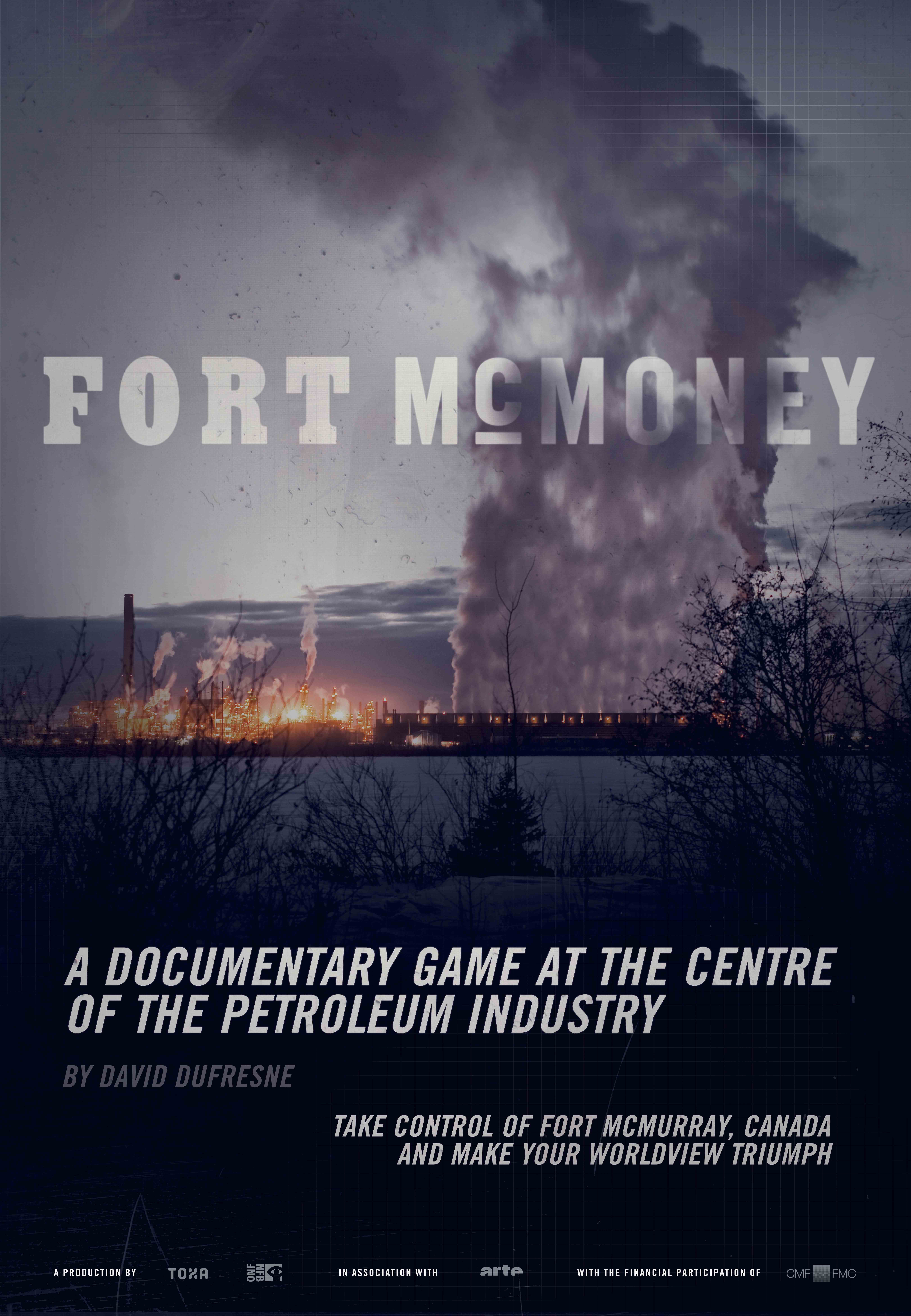Opening debates on social issues and pitting player against player in a friendly, virtual environment, is the name of this game. Created by journalist and director David Dufresne, and in collaboration with Arte, TOXA and the National Film Board of Canada, Fort McMoney is an online interactive documentary game about Fort McMurray, Alberta’s urban boom and the issues produced by such rapid growth.

Thrown into a movie-like replica of areas of the city, the goal is to look for clues, fulfill missions, debate with other players, and to ultimately gain influence in order to impose an opinion on the rest of the group — and to change the virtual future.
Open to play in multiple waves, round one opened on Nov. 25 and attracted more than 350,000 visits. Round two has been made available since Jan. 27 and will last for approximately four weeks.
To learn about the social, economic, political and cultural issues plaguing Boomtown — a nickname given to Fort McMurray — the players must interact with various members of the population through the form of pre-recorded interviews guided by a limited choice of questions. The interviews are excerpts of videos of one-on-one conversations with all the type of people who live in our society. These interviews are in full colour, face to face, with all the background noises of the spaces where they take place: the regular racket of a busy street, a recycling factory or even the silence of a house. These features convey an authenticity to the game even if the jump from one interview to the next does not always feel natural.
The game forces the player to make decisions based on the information available — they can either encourage the oil companies, help the social health of the developing city or find a balance determined only by themselves.
It is also, somehow, a study into the human mind: will it be the economy or the environment that prevails? What does that say about us? Not everything is black and white, and that’s exactly what comes out of this interactive game.
The roads are definitely not paved in money when it comes to the socio-economical development of the Tar Sands and its exploitation. Dufresne clearly presents a picture of poverty, homelessness, drug abuse, health issues and segregations — important issues regarding what is supposed to be a land of money and prosperity.
The gameplay is exactly what makes this documentary shocking and more than a little troubling. The player feels like they are the one making the interviews, choosing the questions, some of which will not reappear later on. The users need to make decisions not only about the fate of the city but also about the information they are going to learn. As the interviews cannot be replayed, pieces of the puzzle might be missing later on.
Reminiscent of the urban planning process, Fort McMoney is a great example of the fact that nothing is as easy as it seems when looking into social issues, and that really getting down to the nitty-gritty process of figuring out what ails a city is time-consuming, heart wrenching and always full of surprises.
Round two of Fort McMoney is available for play at fortmcmoney.com. The game can be played in three languages (English, French and German).




